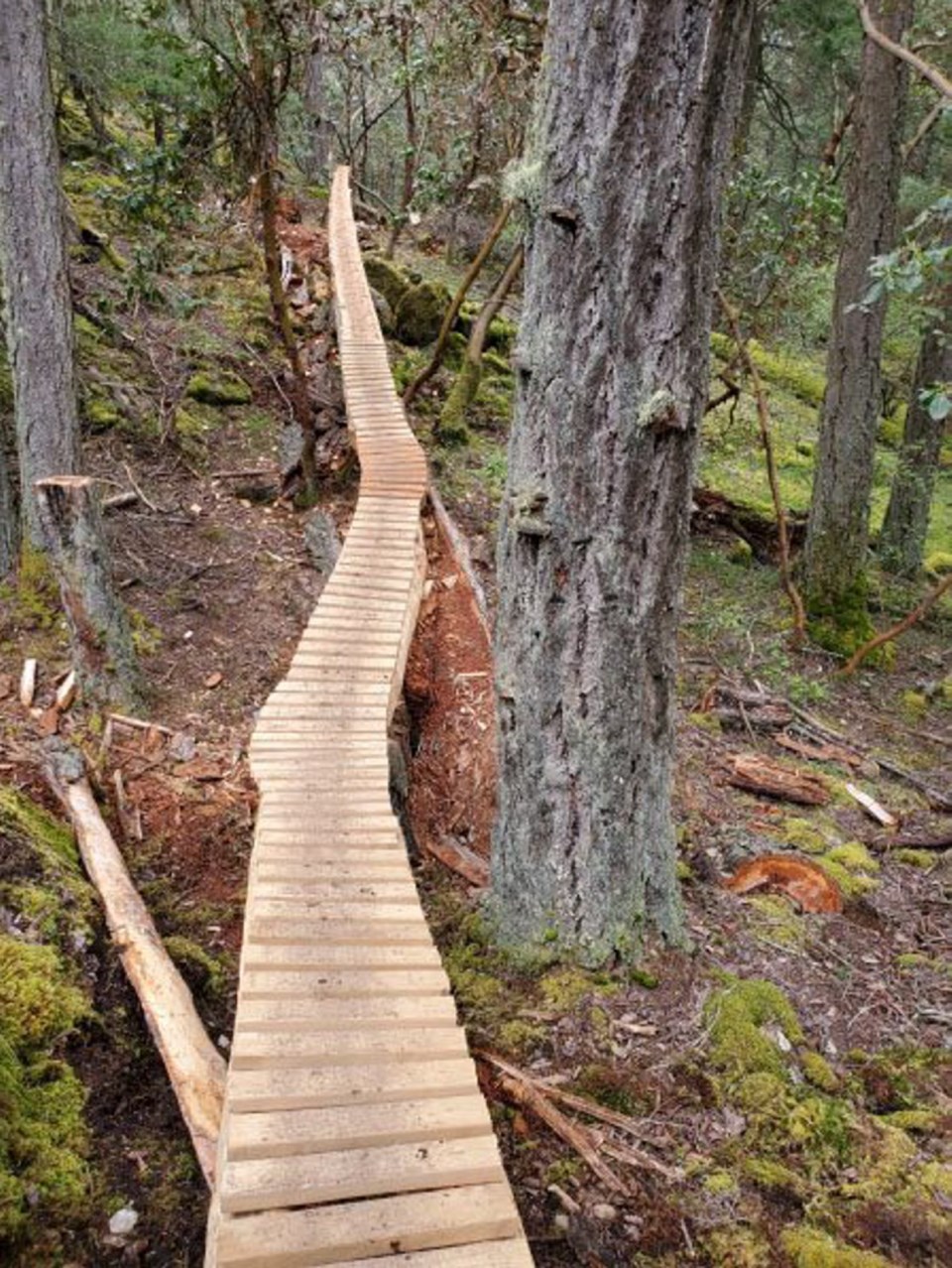The debate over mountain biking in Capital Regional District parks heated up Wednesday as conservationists and bikers squared off over proposed guidelines for adding new trails.
Nearly two dozen speakers weighed in on the issue at a parks committee meeting, and directors received “close to a couple hundred” letters and emails on the matter, said Saanich Coun. Rebecca Mersereau, who chairs the committee.
Mountain bikers highlighted the health benefits of their booming sport and the need to accommodate a growing number of recruits. They warned that people would continue to build illegal or “rogue” trails in the parks unless the CRD provides more sanctioned ones.
Conservationists, including many who fought to protect the district’s wilderness areas, voiced outrage at the environmental damage caused by bikers and urged the CRD to put the brakes on mountain biking in sensitive ecosystems. Some called for more enforcement and others for an outright ban on biking in certain areas.
Neither side seemed particularly happy with the district’s proposed mountain biking guidelines, which aim to “provide a transparent process for identifying the most appropriate mountain biking areas within regional parks,” a staff report says
A number of conservationists felt the guidelines gave short shrift to the importance of protecting biodiversity in the age of climate change.
“At a time when protection of biodiversity is globally more important than ever, I fear we are losing our vision,” said Alison Spriggs, a former parks campaigner with the Wilderness Committee and The Land Conservancy.
“When I go back into these hills we worked so hard to protect, I see wildflower and moss meadows shredded and reduced to mud and bedrock, wide runnels of erosion exposing life-giving root systems, killing trees and other species already stressed by the changing climate.
“And these are only the most visible impacts. What of the ground nesting nighthawk, the elk, bear, wolves and cougar? The impacts on these are only seen by their quiet disappearance.”
Mountain bikers, meanwhile, felt the guidelines didn’t go far enough and failed to address the pressing need for more trails.
Alon Soraya of the South Island Mountain Bike Society told the committee that while the guidelines represent a “huge step in the right direction,” they reinforce existing barriers and misconceptions about the sport.
“We need to get past the mindset that recreation and conservation are opposing interests,” he said. “In this case, adequate access to recreation really is the best way to support and enable conservation.
“Planning and implementing well-built, sustainable trails where they belong, where they do not impact the environment unduly, is the best way forward.”
In the end, the parks committee recommended that the full CRD board approve the guidelines as a first step, while acknowledging that more work needs to be done.
“I think ultimately … this is an issue where balance is needed, and where a compromise that might not satisfy anyone, but maybe addresses the concerns of the various interests, might be the best we can hope for,” said Victoria Coun. Ben Isitt.
“This is not an easy situation,” added View Royal Mayor David Screech. “The struggle between recreational uses of our parks and environmental protection has been going on for years and years and years.”
He called the guidelines “thoughtful” and “logical” and criticized a number of speakers and letter writers for trying to justify illegal trail building in the parks, saying that only undermines their arguments.
“Nobody can go into a park and do as they please and not expect consequences, and I think it puts your negotiation powers with us at a loss when you act like that is legitimate, appropriate and proper behaviour, because it’s not,” he said.
“They’re parks, they belong to everybody, and no one user group can presume that they have any right to disturb or change them.”
The issue will go to the full board on May 12.
lkines@timescolonist.com



